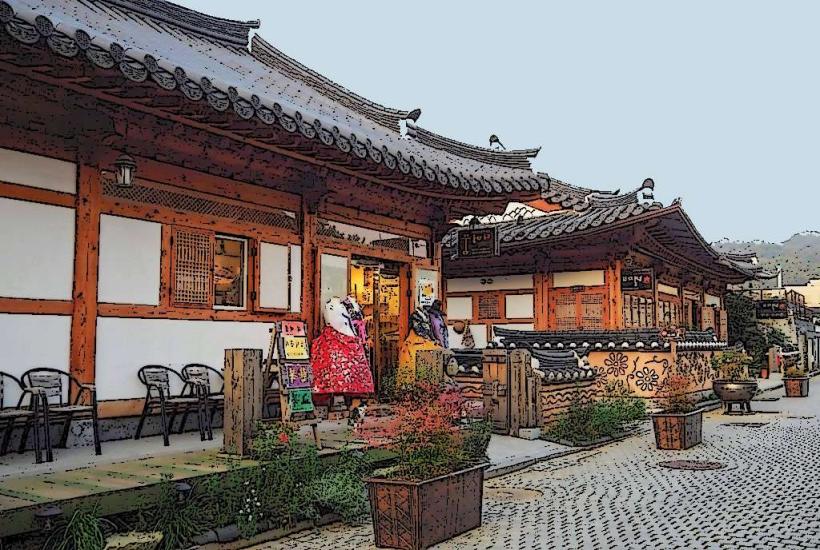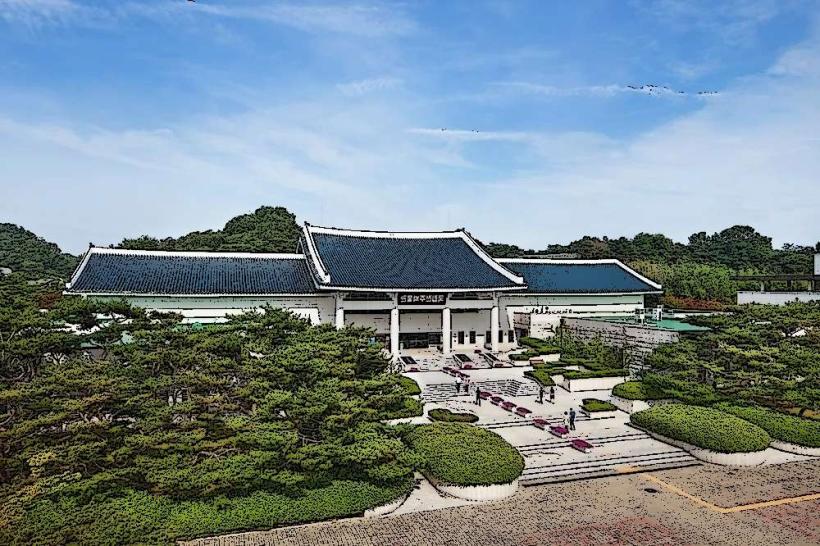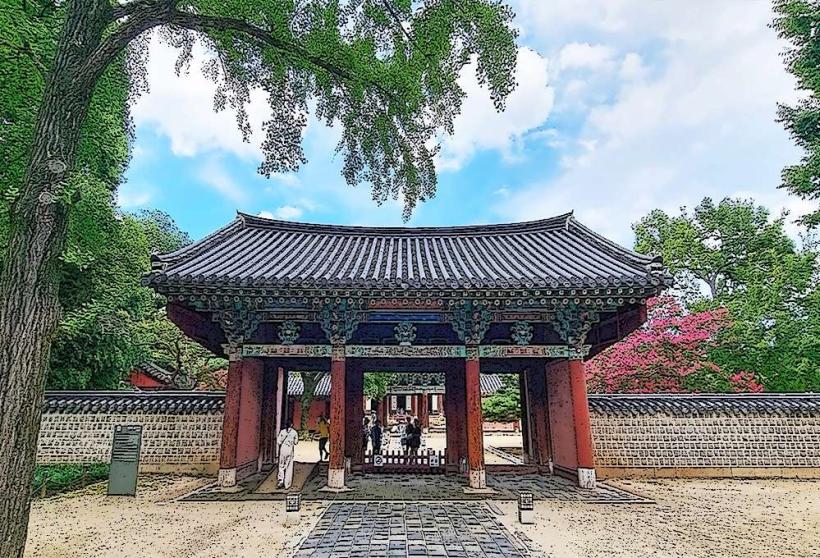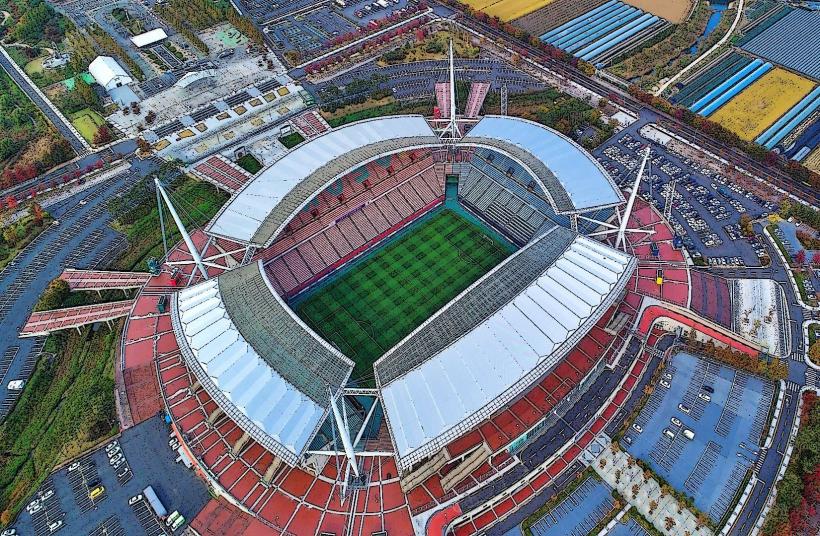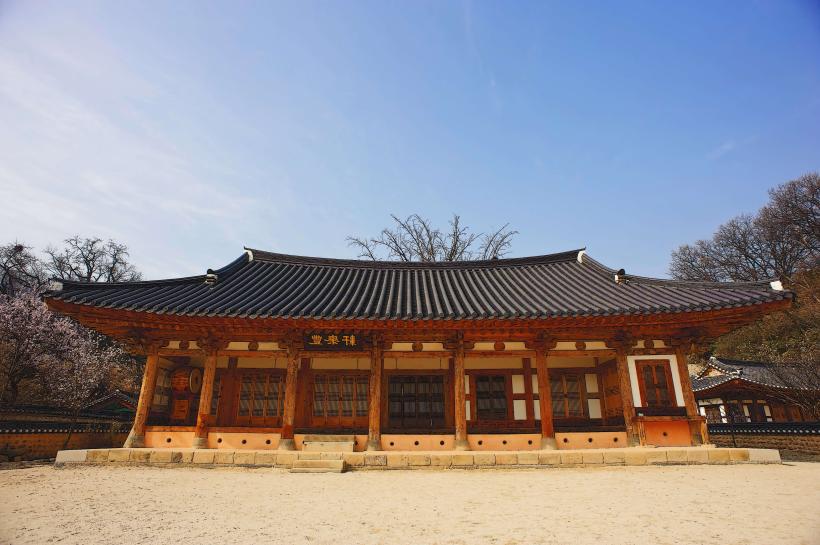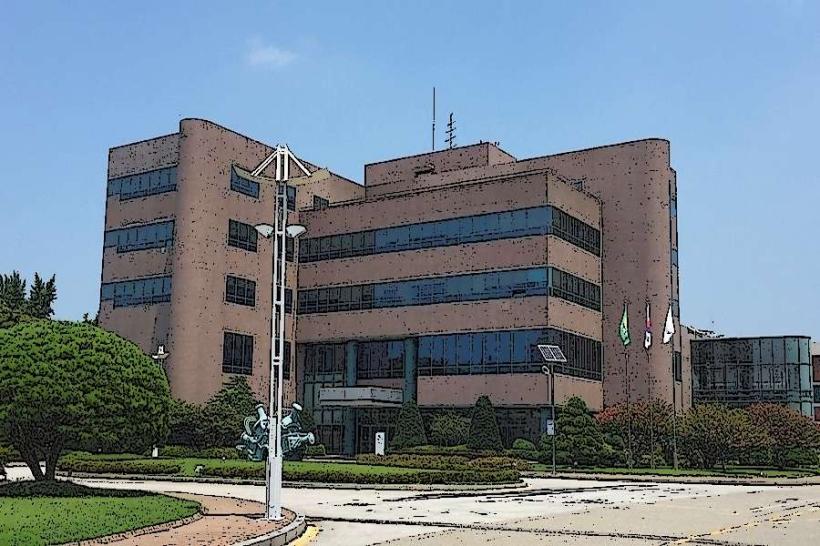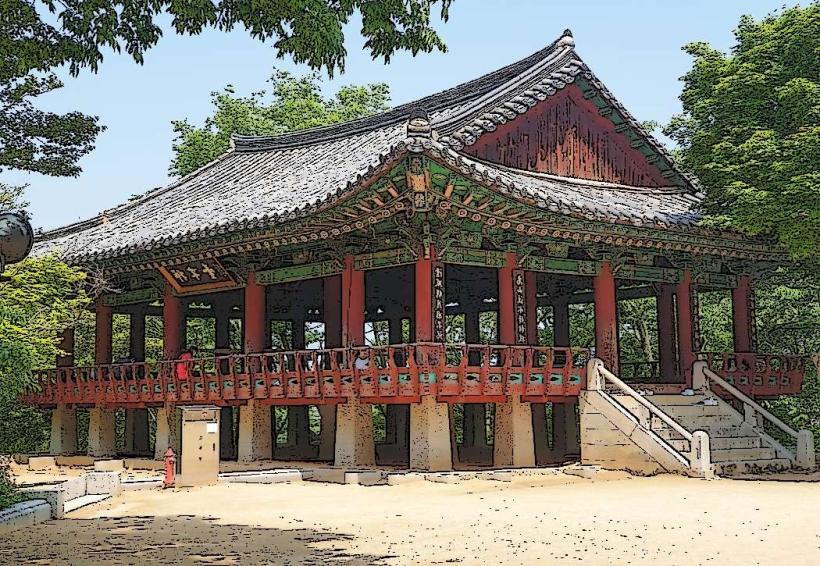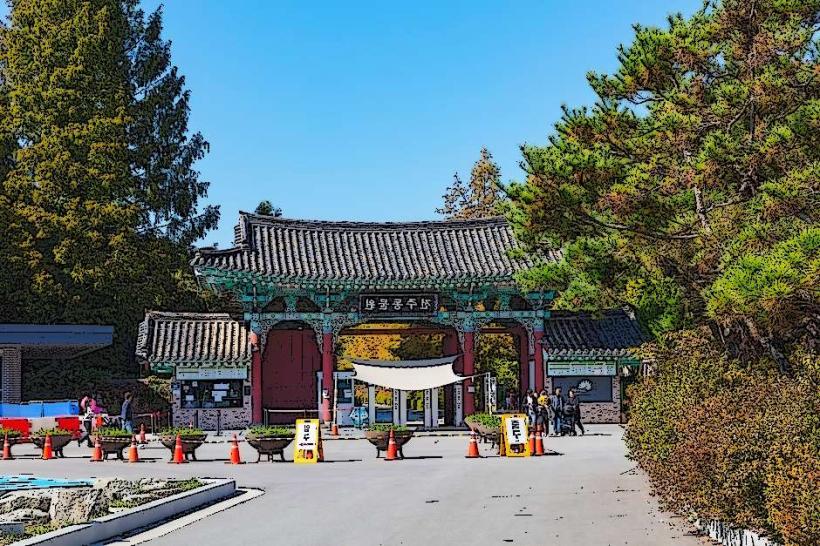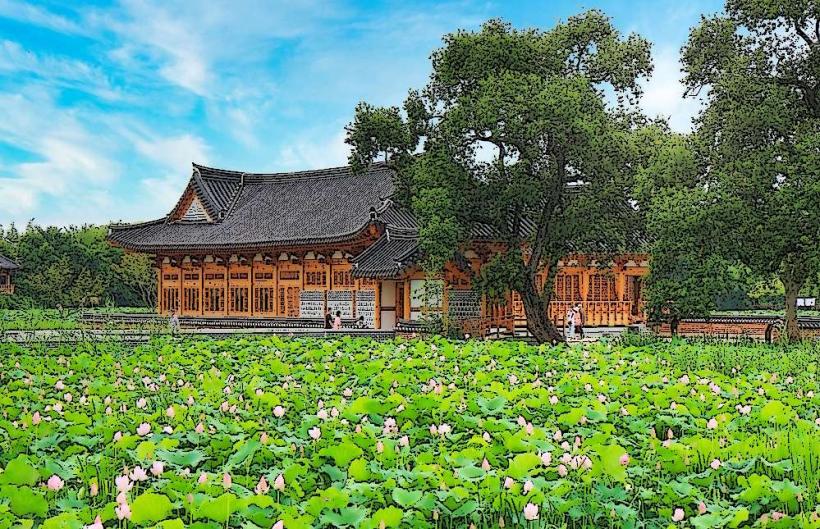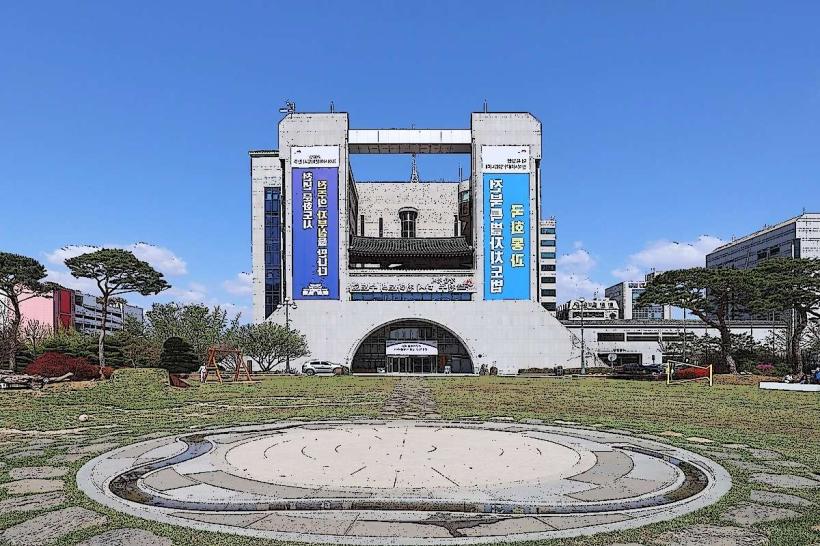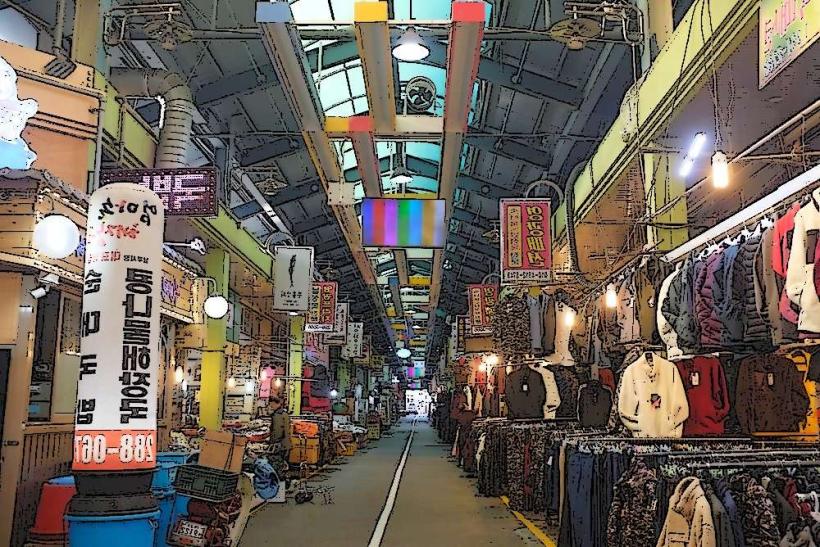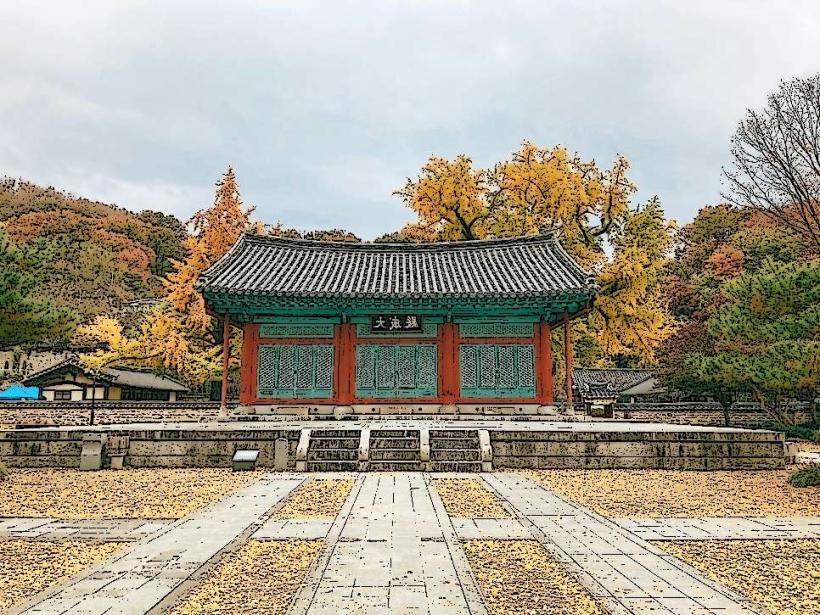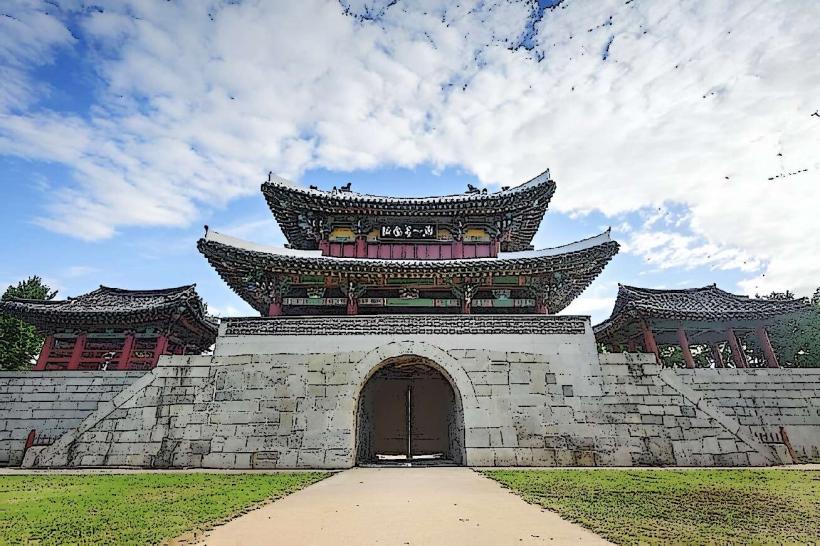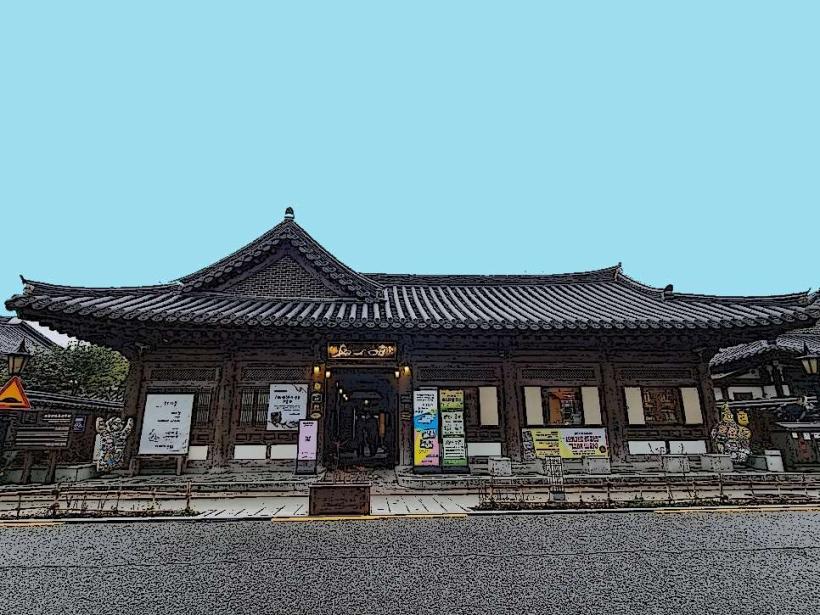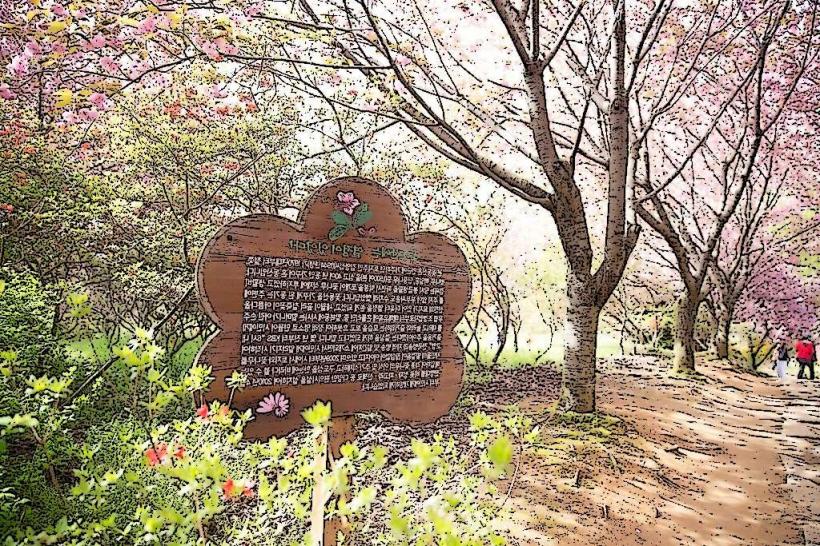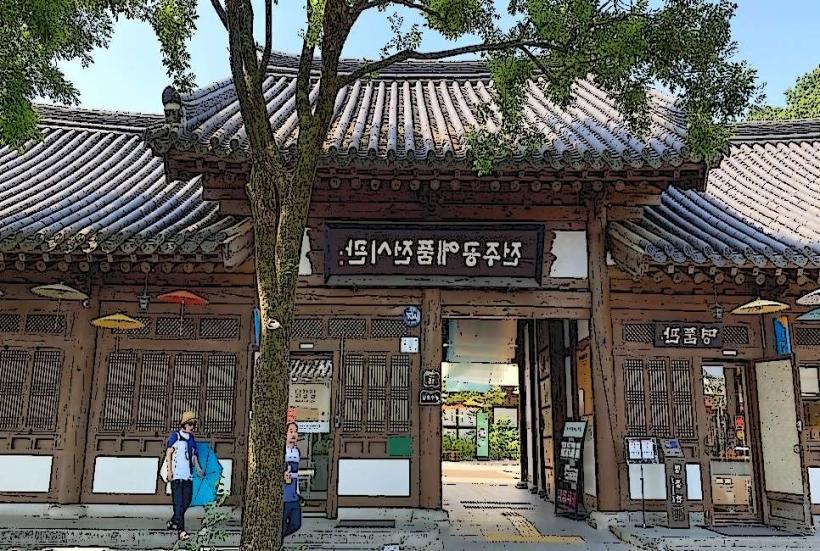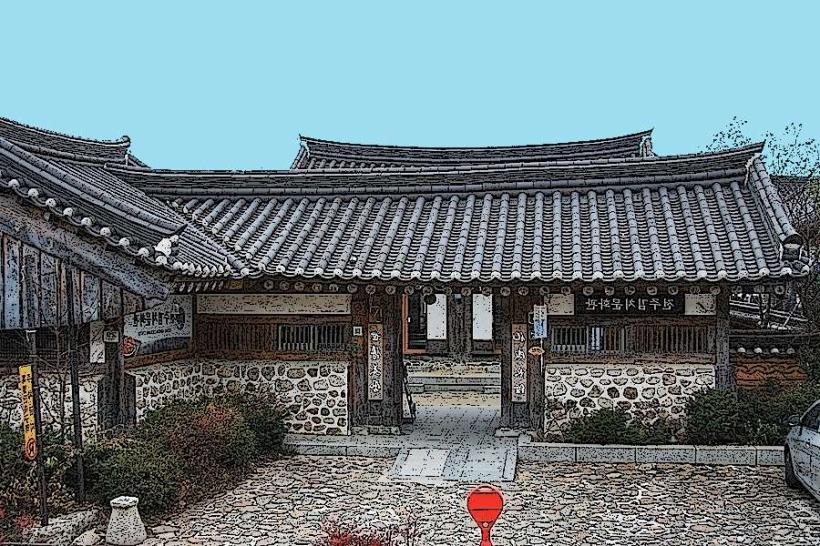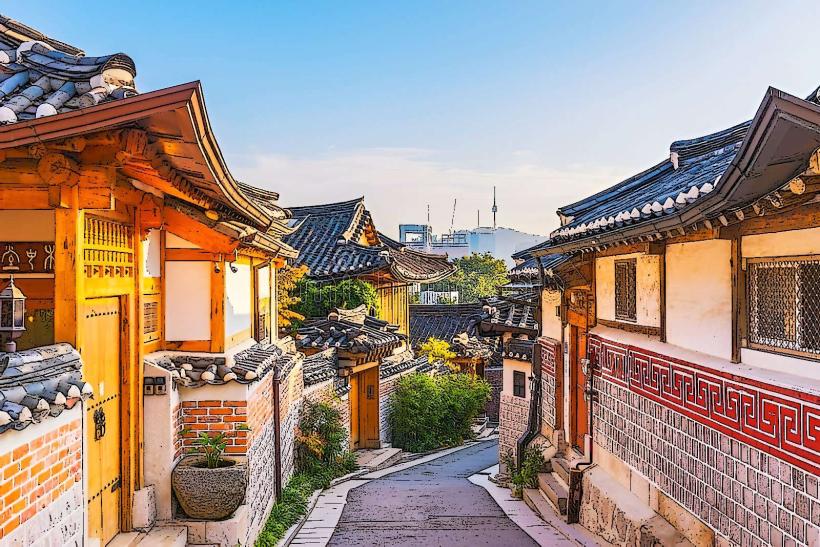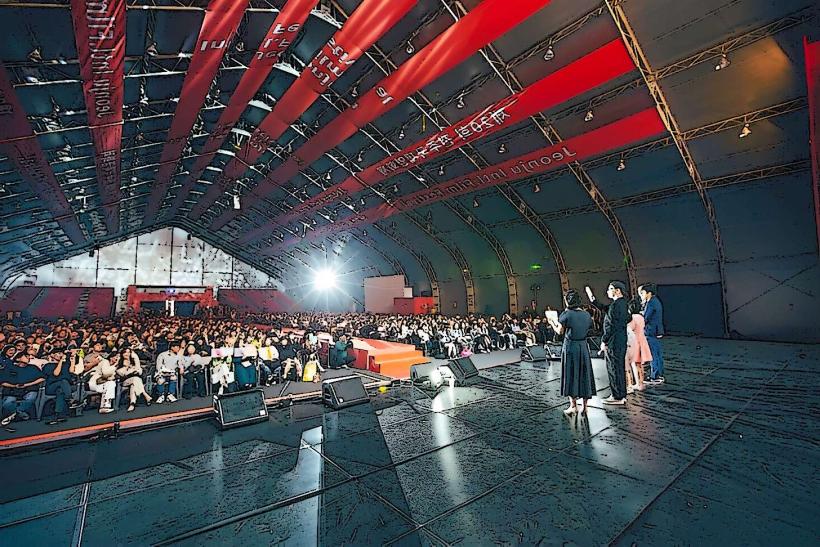Information
Landmark: Jeonju Confucian SchoolCity: Jeonju
Country: South Korea
Continent: Asia
Jeonju Confucian School, Jeonju, South Korea, Asia
Jeonju Confucian School is a historical educational institution located in Jeonju, South Korea. It served as a center for Confucian learning and rites.
Visual Characteristics
The school complex features traditional Korean architecture with tiled roofs (giwajip) and wooden structures. Walls are constructed from earth and stone. The main buildings are arranged around courtyards, with the central lecture hall (Myeongnyundang) being a prominent structure. Colors are muted, typical of traditional Korean construction, with natural wood tones and grey roof tiles.
Location & Access Logistics
Jeonju Confucian School is situated within the Hanok Village in Jeonju. It is approximately 2km southwest of Jeonju Station. Access is via local roads within the Hanok Village. Parking is available in designated public lots within the Hanok Village, with fees applicable. Several city bus lines serve the Hanok Village area, including routes 79, 109, and 541, with stops within a 5-minute walk of the school.
Historical & Ecological Origin
The school was established in 1438 during the Joseon Dynasty. Its original purpose was to educate scholars in Confucian principles and prepare them for civil service examinations. It has undergone several reconstructions and renovations throughout its history, with significant restoration work in the early 20th century.
Key Highlights & Activities
Visitors can explore the various buildings, including lecture halls and residential quarters for scholars. Observing the traditional architectural elements is a primary activity. The central courtyard provides space for quiet contemplation. Information panels detail the school's history and the significance of Confucianism.
Infrastructure & Amenities
Restrooms are available on-site. Limited shaded areas are provided by the building overhangs and trees within the courtyards. Cell phone signal (4G/5G) is generally good within the complex. Food vendors and restaurants are abundant in the surrounding Hanok Village, within a 2-minute walk.
Best Time to Visit
For photography, early morning or late afternoon offers softer light. Spring (April-May) and Autumn (September-October) provide mild weather conditions. The school is open year-round, but visiting during weekdays may result in fewer crowds.
Facts & Legends
A specific tradition involved scholars writing wishes on small wooden plaques (sonyeompan) and hanging them on trees within the school grounds, a practice that continues informally with visitors today.
Nearby Landmarks
- Jeonju Hanok Village (0.1km North)
- Omokdae and Imokdae (0.3km West)
- Gyeonggijeon Shrine (0.4km Northeast)
- Jeondong Catholic Cathedral (0.5km Northeast)

